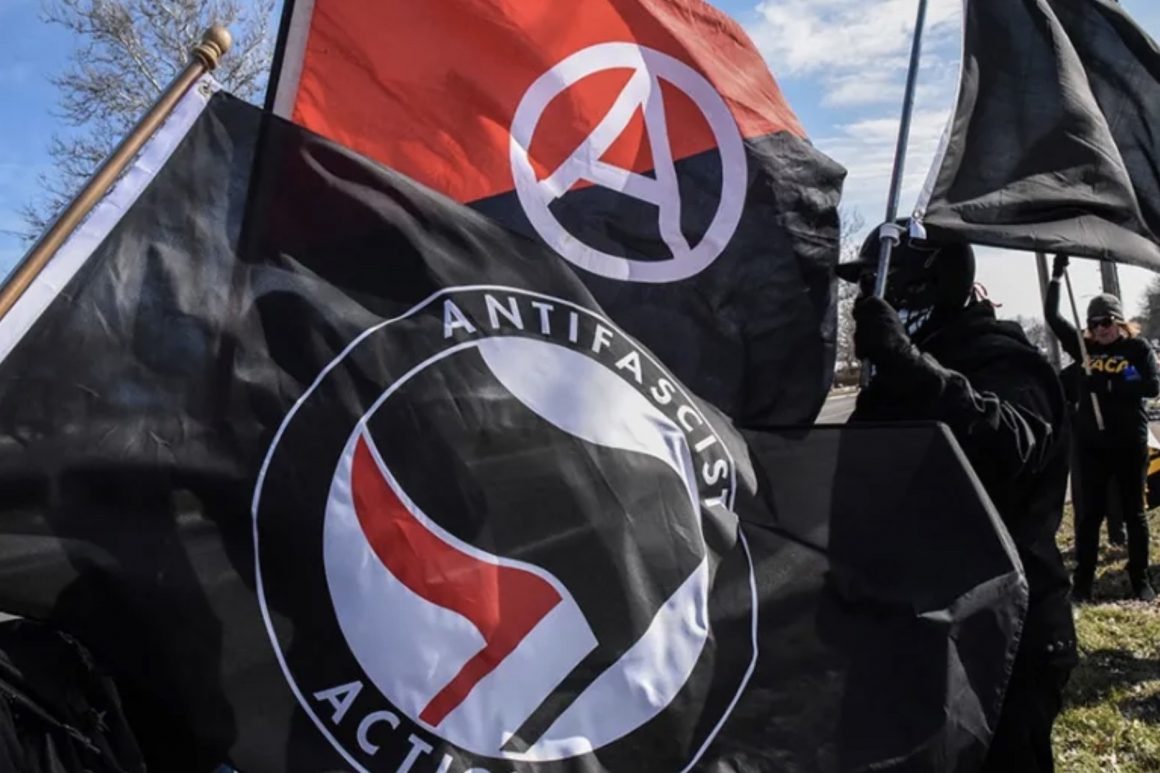The story of the anti-revolutionary phenomenon known as the “ultra-lefts” is a psychological story. A story about minds that have been alienated from society, then manipulated into reinforcing the same power structures which produce this alienation. Not every individual who’s gone down this tragic path will be brought to a way of thinking that’s conducive to assisting in revolutionary progress. There are many developing radicals who can still avoid the fate of the ultras though, should they come across material warning them on how to avoid it.
As odd as it can feel to describe ideas in terms of pathologies, these two things are highly linked; somebody’s mental state can easily be a determining factor in whether they decide to embrace a new idea, or to discard an old one. Lenin alluded to this strange reality about the human mind in his analysis of the psychological condition behind anarchism. He called this condition “despair,” rather than merely “disillusionment” as could better be described as the condition behind Marxism, because despair was in his judgment the logical origin of a “revolutionary” ideology that’s not practically capable of winning. He said the reason for this fundamental deficiency within anarchism is “Failure to understand the development of society–the role of large-scale production–the development of capitalism into socialism. (Anarchism is a product of despair. The psychology of the unsettled intellectual or the vagabond and not of the proletarian.)”
Despair is an appropriate term to associate with anarchist thought because not only does such an emotion naturally lead one to ideas that won’t help someone achieve things; it’s also the emotion that’s been shown to disproportionately be shared by the types of individuals who are already ideologically inclined to become anarchists. Psychology Today has summarized a study on people across the political spectrum that’s “used data from the General Social Survey, a large-scale survey of American adults age 18 and older that is conducted every few years…[The researcher] Kirkegaard’s analysis found that, overall, liberals tended to report poorer mental health than conservatives. This trend was particularly pronounced for those of both sexes self-labeled as ‘extremely liberal,’ who tended to be noticeably worse off on several measures, not just compared to conservatives, but even compared to those identifying as ‘liberal’ or ‘slightly liberal.’”
Because those within the extremely liberal category are not all or even mostly anarchists, there are plenty of ideological directions other than anarchism that these types of leftists can be drawn towards—many of them just as destructive. That’s why the main people I hope to reach with this warning aren’t anarchists, who largely are already too hostile towards serious revolutionary practice to want to change. I rather aim to sway those who are presently more likely to go towards Marxism-Leninism, or who are already Marxist-Leninists yet still figuring out their mode of practice.
My words of caution to you are that just because you’ve avoided the error the anarchists make of expecting capitalism to be defeated without a state, doesn’t mean you can’t repeat their error of exclusively trying to appeal to liberals. Which is an error that makes your organizational endeavor isolated from too many of the people for you to be able to win; that renders you unable to effectively fight the imperialist psyops that keep the bourgeois state strong, and the workers movement impotent.
Up until last year’s escalation of the proxy war in Ukraine, it looked like U.S. Marxist-Leninists didn’t have many members who are at risk of contributing to this problem of left-wing complicity in imperialism. During 2019 in particular, those within this group were able to unite behind the anti-imperialist cause. The anarchists were the main ones on the left, moreso than the social democrats or the Maoists, who were pretending that the Hong Kong revolt was worthwhile for socialists to support.
At the time, Hong Kong looked like the perfect litmus test for who was serious about combating U.S. hegemony. Violent protesters, whose tactics in practice consisted of terrorism against their own neighborhoods, had mobilized in response to a Chinese extradition bill which was created simply as an accountability measure for the most heinous of crimes. The unrest was revealed to have been directly linked to the CIA’s National Endowment for Democracy, which funded the organizations behind the demonstrations (and by extension the riots, assaults, and murders that then came about). Ukrainian Nazis traveled to join in on the protests; the sign-holders displayed hate symbols; the demonstrators displayed British and U.S. flags (despite being in a country that’s long been fighting off imperialist attacks from these two countries); the movement’s leaders were directly collaborating with the heads of the American empire.
Marxist-Leninists in the U.S. were united in their view of the Hong Kong issue; and in the idea that fighting the information war against the Hong Kong psyop (as well as all other anti-China psyops) was necessary. So it appeared we wouldn’t need to have an American equivalent of the conflict between the opportunistic Second International, and the communists who were principled on anti-imperialism. It looked like everyone in the U.S. who called themselves a Marxist-Leninist was committed to fighting U.S. hegemony, making no such ideological struggle necessary. Then the Ukraine escalation happened, and everyone in the movement was faced with a more difficult choice. Their choice was no longer “should we fight the information war to help socialist China,” it was “should we fight the information war to help the Russian people’s anti-fascist struggle.”
Which doesn’t sound like a hard question, but many communists in the imperial center have certain allegiances; allegiances that conflict with their professed commitment to anti-fascism and anti-imperialism.
—————————
How do you corrupt a hero? By appealing to their desire to do good, and redirecting it towards harmful endeavors. Somebody whose heart and intentions are good can’t see the error of their decisions when they’ve been led to believe those decisions advance a righteous cause; at least not as long as they have an incentive (usually a social incentive) not to recognize this error. By cultivating an environment in which somebody who does and says the “respectable” things can constantly have their perceived righteousness reaffirmed by others in their circle, today’s “left” spaces have come to sustain themselves through such emotional manipulation. To somebody whose circle of friendship and acceptance is based within a certain ideological circle, “social proof” (where everyone sharing an idea makes that idea look true) seems indistinguishable from factual proof. They can convince their members that they’re fighting for justice, when in practice they’re doing the opposite.
That’s what’s behind every imperial center leftist who’s been working to sabotage the transition towards multipolarity. The rationale behind their actions is that Washington’s geopolitical challengers are at the most rival imperialist powers; or at the least powers whose internal contradictions make narratively backing their anti-imperialist actions not worthwhile. As I’ve alluded to, there are plenty who’ve been able to reconcile China’s contradictions, yet failed to do so in regards to Russia. This can even be the case when they know that it was Russia’s communists who forced the capitalist state into taking action in Ukraine, or that the special military operation has represented an overall gain for multipolarity; they aren’t the happiest about admitting these facts, but they’re obvious things to any educated communist.
The reason why these “red libs” are nevertheless inclined to defend the opportunist orgs which have denounced the anti-fascist intervention; or to attack the orgs that have praised Russia’s action; is because they fundamentally view the international struggle as far less important than it actually is. They either deny the reality that we can’t win domestically until we’ve sufficiently combated U.S. hegemony; or rationalize it with the notion that their favored “left” orgs are already doing enough for the anti-imperialist cause.
When you make it your goal to oppose the forces that are most consistent about fighting the hegemon, you find yourself on the same side as the forces whose motives aren’t as pure as yours. Forces like Greece’s KKE, which has endorsed the anti-materialist narrative that the new cold war is an “inter-imperialist one”; or like In Defense of Communism, an ultra-left publication that’s been defending the KKE while attacking the orgs which have decried the KKE’s opportunism. Idcommunism’s tactic is to portray these orgs as opportunistic when it comes to global issues, even though they’re the ones being the most principled on anti-imperialism:
Against the backdrop of the imperialist war in Ukraine, the ideological issues that have plagued the international communist movement for years have become more acute, leading to serious political mistakes. This has taken the form of denying the imperialist character of China and Russia, as a strategy to dethrone the US from the peak of the imperialist system…
Multipolarity is an illusion, a prolongation of imperialism through the redistribution of raw materials, energy, transport networks, markets, and labor force. Pavel Blanco correctly affirms it is an argument that dismisses the capital-labor contradiction and represents the slogan of interstate alliances of a capitalist nature. In essence, it treats the enemy as an ally, and its practical application traps popular forces and paralyzes the labor movement. Modified forms of this ideological construct have surfaced consistently since the Russian military intervention in Syria. It is the beacon to which opportunist trends of varying shades are drawn, achieving the same end: the preservation of the opportunist influence over the workers and people. The main nuclei of these forces in the US are the CPI and the PCUSA, which draw into their orbit figures and groupings with political ideas and content that are identical. On this foundation, radical words are needed to draw support for the interests of the bourgeoisie of China and Russia.
Even though those within the ideological element I’m talking about wouldn’t go so far as to say that multipolarity isn’t historically progressive, or that Russia and China are imperialist, their core objective is to rationalize aligning with those who oppose multipolarity and denounce the special operation. Therefore they’ll inevitably reaffirm unprincipled criticisms of PCUSA and CPI like the ones quoted above; ones which idcommunism republished from an org that got formed through a split from PCUSA, a split that happened over PCUSA’s decision to be principled on Ukraine.
The moment somebody goes beyond criticizing orgs like PCUSA and CPI on grounds informed by serious theoretical understanding, and instead criticizes them for their anti-imperialist stances, they’ve betrayed every left cause they claim to uphold; because to assist NATO’s psyops is to actively hinder the domestic struggle. To the left opportunists who direct these kinds of attacks at PCUSA and CPI, whatever actual ways these two orgs have gone wrong are not even as important as their being principled on anti-imperialism; their real crime has been to break from the liberal framework for analyzing world events.
This is seen as such a serious offense because it shows communists that there’s an alternative to left opportunism’s strategy of tailing liberals; of compromising on anti-imperialism in order to appeal to those within the “left” niche. To the communities of theoretically underdeveloped radicals who aren’t genuinely interested in winning, and thereby disregard the distinction between primary and secondary contradictions. These communities, even if their members claim to be Marxists, are still largely informed by the anti-Russian set of beliefs that the Russiagate psyop instilled within American liberals. And because the left opportunists see it as essential for them to get the support of these radlibs, and of liberals more broadly, their impulse has been to distance them from Russia’s actions; even if they at the same time support China, which has been benefiting from these actions.
To be a principled anti-imperialist is to show that your goal is not to gain influence within liberal and insular “left” spaces, but to build a relationship with the people. Who the left opportunists portray as overwhelmingly sharing the obstinate anti-Russian attitude that the liberals have, but actually are for the most part compatible with a serious anti-imperialist perspective. This idea that we should only care about reaching the “left” comes from 1) an overestimation of how many Americans are obstinate pro-imperialists, and 2) the notion that anybody political who isn’t on the left is either a fascist, or a fascist enabler. Both of which are obviously undialectical distortions of the conditions we’re navigating, and will render one’s practice ineffective.
The problem is that these are the default ideas U.S. leftists operate according to; which, as our geopolitical and class struggle escalates, is increasingly leading them to side against the anti-imperialist cause. As Stalin said, dismissal of the value of the most conscious element is the basis for all opportunism. The left opportunists do this by portraying liberals and those within “left” spaces as the most conscious and advanced element of the people, when in reality it’s those with an anti-imperialist consciousness which are the most advanced.
Anti-imperialist minded people are the most conscious element because at this stage, U.S. hegemony is the globe’s primary contradiction, and something we need to do everything we can to fight in order to resolve all other contradictions. The radicals who align with left opportunism are turning away from this practical reality, believing the American exceptionalist narrative that our domestic situation in the imperial center is the only thing we should take seriously. Thereby, they’re ironically making the liberation of oppressed peoples in the core less achievable, in addition to evading their responsibility to combat their government’s crimes against the peoples of the world.
The only way to rationalize engaging in this betrayal of one’s own values as a radical is by pointing to the real or perceived contradictions of modern Russia, or of the formations backing Russia’s action; then weaponizing those contradictions to try to isolate and censure these formations. An example of this is when imperialism-compatible leftists portray Russia as a fascist state; as the commentator Yanis Iqbal has clarified, the true nature of modern Russia is one that can’t be reduced to such a label:
Russia does not have fascism. Instead, it pragmatically operates according to multiple ideologies that can challenge the legitimacy of the US-led world order and thus, help combat imperialist attacks against Russia. Western observers have accused Russia of being fascist because they overemphasize the conservative and authoritarian elements that compose Putinism. What they overlook is the fact that these ideologies are said to be against the excessive liberalism and globalism of the West. Thus, what matters for Putin is a sovereignist position against the West, one that uses patriotism against an interventionist Western liberal order. The hegemony of patriotic opposition to imperialism means that the normative core of Russian ideology is not genocidal hatred against an Other and a will to create a new xenophobic culture, all of which are essential ingredients of fascism. Rather, the Putinist worldview utilizes notions of Russian uniqueness – whether it be in the form of national history and culture, illiberalism, or Soviet nostalgia – to undermine the current West-centric world system. Far from resulting in fascism, the perspective of a distinct Russian civilization has shown itself capable of acknowledging the country’s multinational and multiconfessional character.
All of this context is omitted by the leftists who promote liberal academia’s “Russia is fascist” narrative; they look at certain traits of the Russian state in isolation, then use these traits as evidence for this ahistorical idea they’re promoting about what fascism is.
The ultra-left publication Black Agenda Report engaged in similarly dishonest rhetoric when responding to this year’s Rage Against the War Machine rally, with BAR’s polemic then having been shared by the left opportunist PSL. The polemic’s thesis was that due to the ways RAWM coalition members like the Libertarian Party have failed to act in solidarity with marginalized groups (an accusation that’s partly based in fact yet made excessively severe by the author’s biases), the coalition isn’t worth supporting.
Here’s RAWM member Jamie Gray’s rebuttal to BAR’s article; particularly to the part that claims the people who’ve only recently come to the anti-imperialist struggle shouldn’t be welcomed into the movement:
So if someone hasn’t been there from day one they’re not trustworthy? Have you considered that maybe subjective conditions of the human consciousness have a delayed response to the objective conditions of reality? That is, things have been bad for Black Americans for a long time, nobody disagrees with this, but now that whites are also beginning to wake up to the evils of this bloody empire, you’re suddenly going to push them away? Have fun losing…Come to the rally and talk to these people. Interview them. Do what Fred Hampton’s Rainbow Coalition would’ve done. Figure out if they’re really this insane caricature you make them out to be. The Russian Revolution was carried out by a working class that had just years prior [been] doing anti-semitic pogroms, but the Bolsheviks found ways to rally them up and turn them against such backwards racist ideas…Social views are less important than class views. The highest stage of capitalism is imperialism. The primary imperialist force in the world is the United States and its lapdogs in NATO.
By acting like the Russian people’s fight against Nazism should be condemned because they live under a bourgeois state that got forced upon them; and like we should handicap the anti-imperialist struggle because many of its most active participants aren’t on the left; those within the BAR/PSL camp are rejecting ideas that could advance their ideological development. Staying committed to advancing social justice and the class struggle, at the same time as adopting the necessary strategies for defeating the state, is not just a manageable task for a Marxist; it’s a necessary task that makes one become a better Marxist. Reconciling goals that idealists and dogmatists would falsely claim to be irreconcilable is when one comes to a synthesis; to a place of balance within one’s thinking.
—————————
The toxic and polarizing nature of today’s left spaces have disincentivized coming to this particular synthesis: to the synthesis between the domestic struggle and the international struggle. These spaces create not just ideological obstacles towards reaching this educational advancement, but emotional obstacles; mindsets that make reaching that synthesis appear to be a betrayal of one’s self-concept as a hero who will never abandon the oppressed.
The opportunistic actors who shape the minds of these radicals exploit whatever alienation, dissatisfaction, or despair their targets have; they exploit it by offering what looks like a way to defeat the system. The solution that the “red libs” have been sold on is more logical than the one the anarchists have, since it doesn’t involve the absurd anarchist notion that we can immediately skip beyond history’s state-centric developmental stage. Yet the red libs share the view of the anarchists, and of the other radical liberals, that those on “the left” necessarily represent the most conscious element of the people. Consequently, as the class conflict grows more intense and they’re pressured to pick sides, they more and more resemble the anarchists in their practice. This is evidenced by how as soon as Ukraine presented them with a decision of unprecedented weight, they joined the anarchists in attacking those most consistent on fighting U.S. hegemony, and in trying to discourage anti-imperialist practice.
One who earnestly desires revolution can only be comfortable with doing this if they already believe that there’s a viable revolutionary strategy which doesn’t involve doing all we can to combat imperialism. For the types who align with left opportunism while still considering themselves Marxist-Leninists, this strategy is visualized as a project to rally the workers in the imperial center behind a complete systemic liberation program; a program that involves maximal expansion of tribal sovereignty, abolition of all anti-LGBT discrimination, full women’s rights, and an end to our racist and excessively violent capitalist policing system. This is a strategy we should put into practice, and its goals are all worthwhile; the problem is that these types of Marxist-Leninists, due to their being influenced by left spaces, assume the project can be carried out even if we treat anti-imperialism as optional. If we ignore the wider context of global U.S. power, like our local conditions are a fully separable thing from the war operations our government is carrying out.
This assumption is simultaneously too optimistic, based in an overestimation of how successfully we can fight the state while limited by an unprincipled anti-imperialist practice; and too pessimistic, based in the idea that there’s nothing we can do to tangibly impact the wars our government is perpetuating. That idea is not true, and promoting it only cultivates needless demoralization among anti-imperialists; we can force our government to cease its global violence. We can do so by turning popular sentiment against imperialism’s psyops, rendering the wars untenable.
Which the red libs still argue is not a viable goal, on the basis that most Americans supposedly aren’t capable of embracing an anti-imperialist platform unless that platform includes denunciation of Russia. In reality such a denunciation, which has been put forth by the PSL and most of the country’s other “left” orgs, only “helps” these orgs insofar as it makes liberals more comfortable with them. Most of the people aren’t so obsessed with hating Russia that they would try to cancel an org for supporting the special operation; most people, especially most workers, don’t think that way. Their main concern is ending the conditions that are perpetually worsening their living standards.
Indispensable for their attaining this class liberation is them coming to a synthesis between the struggle for their own interests, and the struggle of those around the globe who are trying to gain freedom from imperialism’s violence. Which we can only bring them to by telling them the full truth about the nature of this violence (as in recognizing the reality that Ukraine’s U.S. puppet regime would have committed full-scale ethnic cleansing if not for Russia’s intervention), and by gaining a platform that lets us reach a majority of the people. That’s why building coalitions with the other elements of the anti-NATO movement, which collectively have such a platform, is strategically instrumental.
That’s the kind of consciousness-raising project which is viable in pre-revolutionary conditions. Most Americans won’t give up whatever backward social views they have until their educational and media institutions have been transformed into a more progressive informational landscape. Yet most of them can presently change their minds on something more immediately recognizable as relevant to their material interests. Something like the need to abolish the war machine, which at present represents the biggest tool the capitalists use to maintain class inequality. On a level of simple mass emotional appeal, persuading the workers to oppose militarism is easy; the war machine is the thing that our government is using to make money for the weapons contractors, while the war effort drives up inflation. Many of the workers understand these more obvious ways that the war machine is causing harm; but once they’re also informed about how the war machine is the biggest thing the ruling elites are using to reinforce our socioeconomic system, they’ll join the anti-imperialist cause.
The imperialism-compatible left rejects such a consciousness-raising project, in favor of an attempt (or rather a fantasy) to almost completely get rid of our society’s cultural backwardness prior to when any revolution has happened. If they deny that they believe this can happen, they’re still operating within a logical framework which treats such an idealistic and commandist project like a prerequisite for revolution. Because according to their own arguments, we should only ever work with those who are pure enough to be viewed as acceptable within the insular left spaces. By this standard, we’ll only be able to defeat the state when these “pure” political forces have gained enough influence to win all on their own; which is never going to happen. The history of successful revolutions has shown communist victory is only possible through the communists working with those who aren’t “pure”; as Lenin said: “Only those who are not sure of themselves can fear to enter into temporary alliances even with unreliable people; not a single political party could exist without such alliances.”
This is why so many of the Marxists who refuse to give up these purity fetishist ideas have come to view the PSL as something they must be beholden to: the PSL, if you want to believe the story it tells about itself, is proof that an org can exclusively care about reaching the left while still building itself into a force that threatens the state. The faith these leftists hold within the org depends on interpreting an illusion as real; when you have a lot of money, like the PSL does, it’s easy to make it look like you’re doing something meaningful. As long as your goal is to pander to and reinforce the views of liberals, though, you’re only going to be doing as much as you need to in order to passably appear like a serious org. Your incentive is not going to be to go lower and deeper to find the real masses, as Lenin said we must do, but to stay within a niche.
PSL’s pandering to liberal sentiments lets it maintain access to plenty of connections to liberal groups, and get plenty of funds; yet until it goes lower and deeper, and stops relegating itself to liberal and “left” circles, its electoral campaigns won’t allow it to become an authentic threat to the state. If it were to leverage its abundant resources towards applying PCUSA’s consistent type of anti-imperialist practice—except in this case the project would be much larger due to greater PSL’s logistical capabilities—it would lose these sources of institutional support. Yet not only would it be bringing about a giant disruption of imperialism’s control over the discourse, and of the Democratic Party’s control over radical spaces; it could become more electorally successful. As its outreach would no longer be limited to liberals, but made a dozen times more diverse.
This pivot towards a wider electoral base as a consequence of becoming more anti-imperialist is what the Libertarian Party has been doing since Ukraine prompted it to embrace a greater role in the antiwar movement; as Gray writes in response to BAR’s gloating about how the Libertarians have been becoming less able to get funds: “Maybe the money’s drying up because they’re becoming increasingly hostile to the existing status quo. Maybe corporate donors controlling our political system isn’t a good thing, actually. Perhaps you should be more suspicious of the organizations that are buried in money.” If the Libertarians (a pro-bourgeois party that doesn’t prioritize class struggle) have proven becoming better on anti-imperialism won’t make a party suddenly unable to engage in electoral politics, communists with their emphasis on class struggle would absolutely be able to do the same. This story has shown that you don’t need to compromise with the liberal cultural hegemony in order to be effective; the opposite is true. You can fully break from this hegemony, and rely on the people to keep your political project strong.
The PSL employs the tactic Marx recommended of running candidates in order to make communism more relevant in the mass consciousness, yet it employs this tactic in a way which can’t make it defeat the state; the only people it seeks to reach with these campaigns are liberals and radical liberals. Who it’s not even willing to re-educate towards fully giving up their pro-imperialist beliefs, and therefore can’t become effective cadre members. A radlib-influenced cadre that mainly wants to build relationships with other radlibs, and forsakes a majoritarian practice, is a cadre that will keep itself in a cycle of inertia. In a pattern of organizing projects that won’t ever end with the cadre gaining power, but simply building influence within a social circle that can’t endanger the state.
To become dangerous to the ruling class, you have to break out of this pattern which keeps you ineffectual. You have to escape from the illusion that Marxists can only succeed if they do all they can to keep libs and radlibs friendly with them. The left opportunists are trying to keep us loyal to their projects by claiming that because they’re the ones most aggressively emphasizing social justice, to abandon them is to betray marginalized groups; this is the same kind of manipulation that all kinds of liberals use, whether in or outside the activism-industrial complex.
The Democratic Party uses shows of supposed solidarity with marginalized people to appear trustworthy; as do the U.S. military, the Israeli government, the Ukrainian government, increasing numbers of police departments, the three-letter agencies, and corporations. Many of the corporations that use this tactic are cultivating a bizarre kind of environment that’s uncannily similar to the one which these “left” spaces create; an environment where team members get made to better fit into the group through ritualized shamings, and through encouragements for them to performatively admit their privilege.
This fixation on identitarianism, and the insular practice that comes from it, are not how we’ll end bigotry. We’ll end bigotry through institutional change that makes a cultural shift possible, which can only happen when we’ve combated imperialism enough to be able to defeat the state. The PCUSA concludes that “Socialism will be the start [emphasis mine] of educating the U.S. Population on the national question and the origins of national and the racial oppression”; not the end of it, as is implied by the idealist view of this task. The same goes for the struggle to end socially backward views; the cultural progression we need has to follow an institutional transformation. By acting like this isn’t true, the left’s supposed guardians of social justice are actually harming the cause for social justice. If you want to aid oppressed groups, commit to fighting the global hegemon.
————————————————————————
If you appreciate my work, I hope you become a one-time or regular donor to my Patreon account. Like most of us, I’m feeling the economic pressures amid late-stage capitalism, and I need money to keep fighting for a new system that works for all of us. Go to my Patreon here.
To keep this platform effective amid the censorship against dissenting voices, join my Telegram channel








